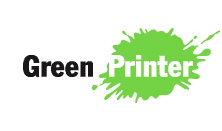Amongst all the other modern and pop culture trends of the 21st century, one fashion has emerged which is anything but a fad. The key concept? Sustainability. Originally confined to the domain of the left, sustainability has – in recent years – become a byword for ethical living for everyone from politicians and corporations to small businesses and individuals.
Sustainable Living Starts At Home
Implementing sustainability at home is often easier said than done. This is particularly true because often the effects of living sustainably aren’t immediately felt by the individual. All that can be said is that a person is contributing, in some way, to a larger cause. It’s no wonder then that sustainable living hasn’t caught on quite as much as it should have done. But what many individuals may have failed to realise is that, not only does sustainable living start at home, but its effects can be felt at home as well.
How Sustainability Can Save You Money
There are two main ways in which living sustainably can save you money. One is because by not adding to the further depletion of our natural resources by consuming more electricity or gas (for example) than you need, the prices for these resources won’t rise any higher than they already have done. The second is because by consuming less, you will not be spending money on resources that would have otherwise been wasted; thereby saving money in both the short term and long. So how can sustainability be achieved at home?
- Use less. This may sound pretty simple, but it’s an easy one to overlook. Switch off your lights and electrical devices. Take shorter showers. Switch off your heating as soon as you are able. Every little bit helps.
- Improve your insulation. Believe it or not but a considerable amount of the energy you use to heat your house can be lost through doors, windows, ceilings and walls. Improving your insulation will reduce this wastage, saving you money.
- Get your house audited for efficiency. According to many Mark Group testimonials this is the easiest and quickest way of finding out just how wasteful your house really is.
- Go paperless. In the 21st century, there’s almost no reason for you to rely on paper for simple things like work, bills and communicating. Some banks and companies even provide financial incentives for switching.
- Recycle! There are so many good reasons for recycling that it would be impossible to list them all here. But if you’re looking for a financial incentive, how about the money you will save by not paying for plastic bags, for returning your bottles, and by not spending money on disposable items like nappies.
Photo from Shutterstock. This post was supported by the Mark Group, the Energy Saving Specialists providing homeowners and commercial solutions for energy efficiency and on-site renewables.





